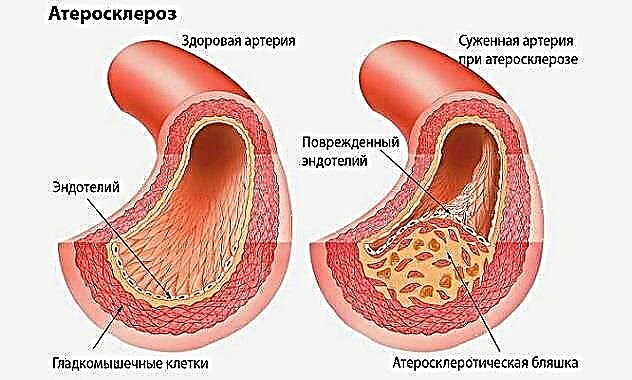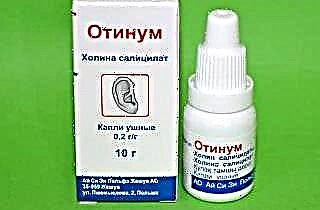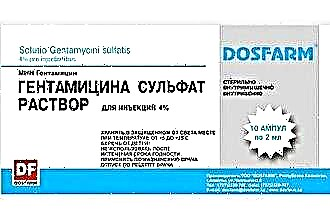The mucous membrane of the oropharynx and larynx is very sensitive to irritants - this, on the one hand, causes a pronounced pain syndrome in case of damage or inflammation, and on the other hand, it allows you to notice and stop the effect of a harmful factor in time. The perception of the temperature of food or air is a protective ability necessary for the body. Trauma or an inflammatory process involving the structures of the throat manifests itself in pain - this is an important sign by which the boundaries of the lesion can be determined. However, what if we are talking not about soreness, but about a feeling of coolness? Why does a chill appear in the throat and can it be a symptom of the disease?
Causes
 The sensation of cold or warmth naturally occurs when the mucous membrane is irritated, for example, when inhaling air, eating food or liquids of different temperatures. This is an absolutely normal and expected feeling that disappears after the stimulus is stopped and does not bother the patient in the future. However, what to do if coldness in the throat appears even without contact with provoking factors? How dangerous is it?
The sensation of cold or warmth naturally occurs when the mucous membrane is irritated, for example, when inhaling air, eating food or liquids of different temperatures. This is an absolutely normal and expected feeling that disappears after the stimulus is stopped and does not bother the patient in the future. However, what to do if coldness in the throat appears even without contact with provoking factors? How dangerous is it?
It should be said right away that the feeling of coolness in the oropharynx and larynx is a symptom that cannot be called specific. This means that it does not apply to the manifestations of a specific disease and may be present in various pathological processes. The pathologies, a sign of which he is capable of becoming, include not only somatic diseases (associated with damage to organs and systems), but also psychogenic disorders (caused by disorders from the psychoemotional sphere).
Look for the cause of the cold in the throat together with a doctor. When a cool throat appears, you cannot rely on information received from other patients with the same symptom. Moreover, you should not start treatment before reading the recommendations of a specialist. Unlike specific signs (for example, Filatov's triangle with scarlet fever or a skin rash along the nerve trunk with herpes zoster), cold in the throat occurs in processes with different etiologies. Therefore, it is necessary to conduct an objective examination, to find reliable criteria for establishing a diagnosis. This can only be done by a doctor.
At the same time, it is helpful for patients to know in which situations a cool throat is usually experienced. Anxiety about your own health and waiting for a doctor's consultation can become less painful if you exclude at least some of the pathologies. The list includes:
- Drying of the mucous membrane.
- Paresthesia of the pharynx and larynx.
- Gastroesophageal reflux disease (GERD).
- Autonomic dysfunction syndrome.
It is worth paying attention to any accompanying signs, in addition to the main symptom, they can help in clarifying the variant of the pathological condition.
Drying out of the mucous membrane
Dryness of the mucous membrane of the oropharynx would seem to be one of the simplest and most understandable conditions that can be eliminated on your own. However, drinking more fluids and using a humidifier are sufficient measures if it is not a disease, but the influence of external factors. There are several main reasons for the drying out of the mucous membrane:
 lack of moisture and overheated indoor air;
lack of moisture and overheated indoor air;- limiting the amount of fluid consumed;
- smoking cigarettes, frequent long-term passive inhalation of tobacco smoke;
- prolonged stay in a dusty, poorly ventilated area;
- respiratory system diseases (rhinitis, sinusitis, etc.);
- sleep apnea syndrome, snoring during sleep.
Thus, the key causes of dryness are inhalation of insufficiently humidified air, a lack of fluid in the body, and forced rapid breathing through the mouth.
At the same time, a cold in the throat is an atypical sign for dryness. Usually, patients are worried about rawness, irritation and pain in the pharynx, sometimes coughing. However, the feeling of coolness, especially if it appears periodically, in particular in the morning, and disappears after eating food or water, walking on the street, may indicate a possible drying out of the mucous membrane.
Paresthesia of the pharynx and larynx
Paresthesia is a type of sensory dysfunction (sensory disorder) of the mucous membrane. Patients describe them as a feeling of constriction in the throat, a violation of the passage of air through it. Also, a feeling of coolness can be attributed to paresthesias, if it is not provoked by a thermal stimulus.
It should be noted several features of the "chill" in the throat when it occurs as a paresthetic sensation:
- Almost never characteristic of a neoplasm.
In this case, paresthesias belong to the list of primary symptoms of tumors of the pharynx and larynx. However, a feeling of irritation, compression, lack of air prevails.
- Often associated with chronic inflammation.
If the patient suffers from chronic pharyngitis, tonsillitis, laryngitis, rhinitis or sinusitis, he may have a feeling of coldness in the throat, it periodically returns and disappears. During the period of exacerbation of the pathological process, it is replaced by pain.
- It can serve as the primary sign of an acute infectious and inflammatory process.
Sometimes hyperesthesia (hypersensitivity) and paresthesia are found as primary nonspecific symptoms in acute pharyngitis, ARVI. They persist for several hours, precede the development of pain syndrome. Hyperesthesia is often present also later, due to inflammation and dryness of the mucous membranes.
Paresthesia cannot be an independent disease - when it appears, the primary cause should be found out.
Sometimes it does not take long (for example, if a person is hypothermic, screaming or breathing through his mouth in the cold, after which he feels a pronounced coolness in his throat and soon pain). In all cases, an examination of the pharynx and, if necessary, the larynx is required, this makes it possible to clarify the presence of pathological changes, including neoplasms.
GERD
 GERD is the subject of close research by researchers around the world. Since the disease is characterized by a variety of manifestations, it is not always capable of "masking" the classical signs that appear first. Gastroesophageal reflux disease can have symptoms not only from the digestive system, but also from the ENT organs: they consist in the development of chronic pharyngitis, laryngitis and even otitis media.
GERD is the subject of close research by researchers around the world. Since the disease is characterized by a variety of manifestations, it is not always capable of "masking" the classical signs that appear first. Gastroesophageal reflux disease can have symptoms not only from the digestive system, but also from the ENT organs: they consist in the development of chronic pharyngitis, laryngitis and even otitis media.
Cold throat is a likely, although not common, complaint for patients with GERD. Sometimes this symptom accompanies the reflux of gastric contents into the esophagus, which in the classical course is expressed as heartburn. If the patient is not worried about an unpleasant burning sensation, he can postpone the visit to the doctor accordingly, and the detection of changes typical for GERD is also postponed.
Establishing and confirming the link between GERD and the appearance of a cool throat can be difficult at times. To do this, you need to exclude other possible causes, diagnose, including fibrogastroscopy. This is a method of examining the esophagus and stomach with an endoscopic probe, which is extremely unpleasant for many patients, which leads to reluctance to seek medical attention.
What other symptoms might suggest GERD if there is a feeling of coldness in the throat? These include:
- disorders of appetite, swallowing;
- burning pain behind the sternum without irradiation (recoil);
- sour taste in the mouth, especially when waking up at night or in the morning;
- morning cough without profuse sputum;
- hoarseness and sore throat;
- violation of taste sensitivity.
Coldness in the throat with GERD may be related to food intake, body position, or recent awakening.
Cold in GERD appears after frequent bending or after sleep, especially if the patient has recently eaten. This symptom is sometimes noted in people who fell into a nap but had eaten before. Some GERD sufferers wake up with heartburn, while others feel cool. It is also possible to suspect that the "chill" is provoked by GERD if the patient has chronic pathologies from the digestive system.
Vegetative dysfunction
 The syndrome of autonomic dysfunction has long been considered as an independent disease, but now experts have come to the conclusion that this condition is a combination of symptoms characteristic of a number of disorders of the functioning of the autonomic nervous system. It occurs for various reasons, including a sedentary lifestyle, stress, intoxication, acute and chronic diseases.
The syndrome of autonomic dysfunction has long been considered as an independent disease, but now experts have come to the conclusion that this condition is a combination of symptoms characteristic of a number of disorders of the functioning of the autonomic nervous system. It occurs for various reasons, including a sedentary lifestyle, stress, intoxication, acute and chronic diseases.
Since autonomic dysfunction is a syndrome, other symptoms other than complaints of a cold throat may be found during the examination. Sometimes the patient does not associate the named symptom with the rest of the manifestations, although they may speak of the same pathological process. Patients are often worried about:
- increased anxiety, phobias;
- palpitations, sweating;
- feeling short of breath;
- headaches, dizziness;
- violation of concentration of attention;
- increased irritability;
- muscle tension;
- sleep disturbance, insomnia, daytime sleepiness, etc.
Symptoms of autonomic dysfunction are not only numerous and varied, but also very "mobile". They do not always remain stable and the same, and are often supplemented by new pathological signs. A feeling of coolness in the throat combined with irritability and drowsiness can be perceived as a result of fatigue, physical and emotional overload, while other symptoms of headaches, sweating, nausea are attributed to manifestations of chronic diseases.
If the feeling of coolness in the throat bothers the patient for a long time and is not explained by dry mucous membranes, infectious pharyngitis or SARS, you should consult a doctor. This will ensure the presence or absence of pathological changes and, if necessary, draw up a therapy regimen. Diseases are easier to treat if their signs are detected at the initial stage of development, so you should not postpone a visit to a specialist.

 lack of moisture and overheated indoor air;
lack of moisture and overheated indoor air;

